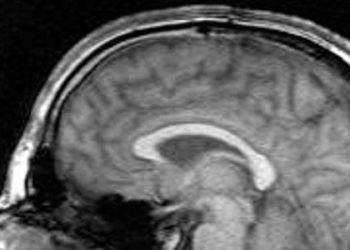Citrus consumption associated with malignant melanoma
1. In a secondary analysis of two large prospective trials of over 63,000 women and 41,000 men, increased consumption of citrus products, particularly grapefruit, was associated with an increased risk for malignant melanoma.
Evidence Rating Level: 3 (Average)
Study Rundown: Psoralen, a natural compound found in citrus fruits, is used in phototherapy for psoriasis, but has also been demonstrated to have photocarcinogenic properties. Previous epidemiological and experimental studies have demonstrated that exposure to psoralen-containing compounds increase the risk of melanoma. However, the association of dietary psoralens and melanoma is unclear. The purpose of this study was to clarify the association of citrus consumption, a commonly consumed food with high levels of psoralen, and malignant melanoma. The authors performed a secondary analysis of the Health Professionals Follow-up Study and The Nurses’ Health Study, which had over 41,000 men and 63,000 women, respectively. The study analyzed dietary information as well as incident melanoma cases during the follow-up period. At the conclusion of the study, consuming citrus more than two times per week was associated with a statistically significant increase in the risk of melanoma, independent of other lifestyle or dietary factors. The highest risk was associated with the consumption of grapefruit versus other citrus. This is the largest study to associate the consumption of citrus with increased risk of melanoma. The study is strengthened by the large sample size, long-term follow up, and multivariate analysis accounting for a large number of confounders. However, the study only included white participants, which may limit the generalizability. Furthermore, the dietary information was self-reported, which may increase misclassification or recall bias. Further studies are needed to assess the association between psoralen-rich foods and melanoma, as well as the overall risks and benefits of these foods in respect to more common chronic conditions.
Click to read the study in JCO
Relevant Reading: The risk of melanoma in association with long-term exposure to PUVA
In-Depth [prospective cohort]: This study was a secondary analysis of patients enrolled in two large prospective cohorts, the Nurses’ Health Study (1984 to 2010) and the Health Professionals Follow-Up Study (1986 to 2010). Information on citrus consumption was collected from a validated food frequency questionnaire every 4 years. Patients with baseline history of any skin cancer were excluded. Overall, 81,685 women and 49,617 men completed the dietary questionnaire. The primary outcome was the incident cutaneous malignant melanoma cases while mucosal and acral melanomas were excluded. After over 24 to 26 years of follow-up, a total of 1,840 cases of melanoma occurred. Using Cox proportional hazards models analysis, there was an exposure-dependent association between overall citrus consumption and melanoma risk (p < 0.001), which was consistent in both women and men. Of the citrus fruits, grapefruit consumption was particularly strongly associated, as greater than three times per week consumption was associated with an age-adjusted HR of 1.61 (95% CI: 1.18-2.19). Consumption of oranges greater than four times per week (HR 1.35; 95% CI: 1.09-1.67) and daily consumption of orange juice (HR 1.32; 95% CI: 1.13-1.53) were also associated with risk for melanoma. These associations remained significant after adjusted for other melanoma risk factors.
Image: CC/Wiki
©2015 2 Minute Medicine, Inc. All rights reserved. No works may be reproduced without expressed written consent from 2 Minute Medicine, Inc. Inquire about licensing here. No article should be construed as medical advice and is not intended as such by the authors or by 2 Minute Medicine, Inc.







